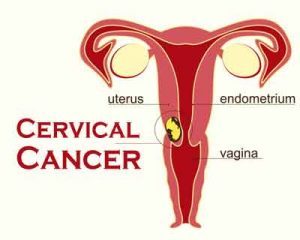- Home
- Editorial
- News
- Practice Guidelines
- Anesthesiology Guidelines
- Cancer Guidelines
- Cardiac Sciences Guidelines
- Critical Care Guidelines
- Dentistry Guidelines
- Dermatology Guidelines
- Diabetes and Endo Guidelines
- Diagnostics Guidelines
- ENT Guidelines
- Featured Practice Guidelines
- Gastroenterology Guidelines
- Geriatrics Guidelines
- Medicine Guidelines
- Nephrology Guidelines
- Neurosciences Guidelines
- Obs and Gynae Guidelines
- Ophthalmology Guidelines
- Orthopaedics Guidelines
- Paediatrics Guidelines
- Psychiatry Guidelines
- Pulmonology Guidelines
- Radiology Guidelines
- Surgery Guidelines
- Urology Guidelines
USPSTF updates recommendation statement on Screening for Cervical Cancer

USPSTF has released its latest update on recommendation Statement on Screening for Cervical Cancer of 2012. The number of deaths from cervical cancer in the United States has decreased substantially after the implementation of widespread cervical cancer screening. According to an estimate, It has substantially declined from 2.8 to 2.3 deaths per 100 000 women from 2000 to 2015.
The agency reviewed the evidence on screening for cervical cancer, with a focus on clinical trials and cohort studies that evaluated screening with high-risk human papillomavirus (hrHPV) testing alone or hrHPV and cytology together compared with cervical cytology alone.
Major Recommendations are-
- The USPSTF recommends screening for cervical cancer every 3 years with cervical cytology alone in women aged 21 to 29 years. For women aged 30 to 65 years, the USPSTF recommends screening every 3 years with cervical cytology alone, every 5 years with high-risk human papillomavirus (hrHPV) testing alone, or every 5 years with hrHPV testing in combination with cytology (co-testing).
- The USPSTF recommends against screening for cervical cancer in women older than 65 years who have had adequate prior screening and are not otherwise at high risk for cervical cancer.
- The USPSTF recommends against screening for cervical cancer in women younger than 21 years.
- The USPSTF recommends against screening for cervical cancer in women who have had a hysterectomy with removal of the cervix and do not have a history of a high-grade precancerous lesion (ie, cervical intraepithelial neoplasia [CIN] grade 2 or 3) or cervical cancer.
These recommendations do not apply to individuals who have been diagnosed with a high-grade precancerous cervical lesion or cervical cancer. These recommendations also do not apply to individuals within utero exposure to diethylstilbestrol or those who have a compromised immune system (eg, women living with HIV).
Further reference log on to http://10.1001/jama.2018.10897

Disclaimer: This site is primarily intended for healthcare professionals. Any content/information on this website does not replace the advice of medical and/or health professionals and should not be construed as medical/diagnostic advice/endorsement or prescription. Use of this site is subject to our terms of use, privacy policy, advertisement policy. © 2020 Minerva Medical Treatment Pvt Ltd